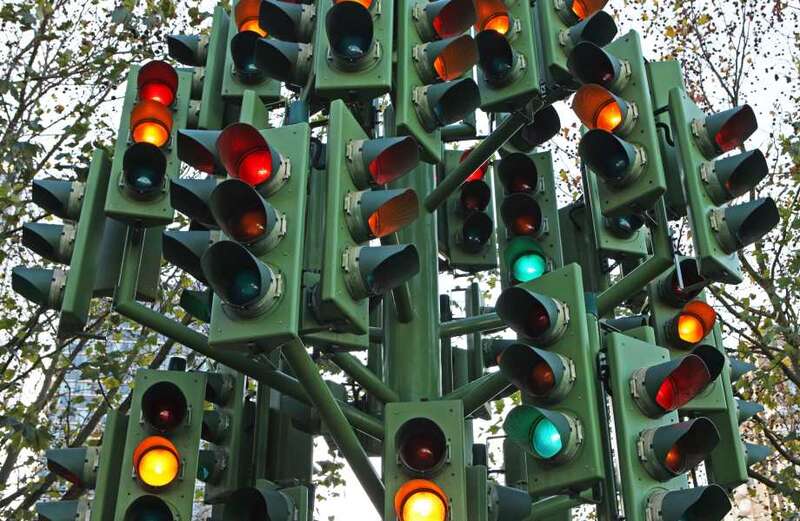TRAFFIC lights are an important part of traffic control.
Here is everything you need to know when you accidentally run a red light.

Can I get fined for driving through a red light?
Running a red light is one of the most common traffic sign offences and involves driving past the white stop line when a traffic light is displaying a red light.
This doesn’t just apply to permanent traffic lights either – it is also applicable to temporary traffic lights for road works, pedestrian crossings, level crossings and motorway lights.
The traffic laws are clear that driving through a red light is a strict liability offence.
 Are there illegal baby names? Surprising monikers that are BANNED in other countries, from Sarah to Thomas
Are there illegal baby names? Surprising monikers that are BANNED in other countries, from Sarah to Thomas
Failing to comply with the rules carries a minimum fine of £100 and three penalty points.

But in more severe cases, the penalty may increase to six penalty points and a maximum fine of £1,000.
Examples of more serious offences include causing an accident, speeding, or driving through a red light after it has remained red for a long time.
If the offence has been detected by a fixed camera, you can expect a Notice of Intended Prosecution to arrive by post within 28 days.
You will also be asked to identify the driver of the vehicle at the time the offence was committed.
If you fail to respond to the penalty notice, or give wrong details of the driver, the case could go to court and you could face a more severe penalty.
However, you can appeal the notice if you feel you had mitigating circumstances.
On the rare occasion that you defend your offence you will need to prove following things:
- Proving you did not go through the red light
- Proving there was a defect with the light or related signage
Do traffic lights have a camera on?
Not every traffic light will have a camera fitted to it – but they are quite common.
Usually bigger and busier junctions have red light cameras.
 All about Rachel Nickell who was murdered in front of her son Alex Hanscombe
All about Rachel Nickell who was murdered in front of her son Alex Hanscombe
And if a junction is known to be an accident-prone area, then they're more likely to be installed as well.
The best advice is just to treat every junction as if there are cameras, and be careful not to disobey the lights or drive over the white lines.
Traffic light (or red light) cameras can catch drivers who run red lights.
Their sensors turn on when the light changes to red, and they detect cars that pass over the advanced stop lines.
These cameras usually also have built-in radar technology and can also catch out 'amber gamblers' – drivers who speed up at an amber light.
The camera will usually flash at you to let you know it has recorded the offence, although this is not always the case.
In some cases, drivers can face a fine even if they have stopped before the lights.
Rule 178 of the Highway Code states: "Some signal-controlled junctions have advanced stop lines to allow cycles to be positioned ahead of other traffic."
"Motorists, including motorcyclists, MUST stop at the first white line reached if the lights are amber or red and should avoid blocking the way or encroaching on the marked area at other times, e.g. if the junction ahead is blocked."
"If your vehicle has proceeded over the first white line at the time that the signal goes red, you MUST stop at the second white line, even if your vehicle is in the marked area."
"Allow cyclists time and space to move off when the green signal shows."
Will I fail my driving test for going through a red light?
Not responding appropriately to traffic lights is one of the top ten reasons drivers fail their driving test.
Whether it's a minor mistake, or a more serious fault, it will still be marked under the 'Response to signs – Traffic lights' section on the driving test report.
If the candidate fails to stop at a red light, they will immediately fail.
This also goes for drivers crossing over the advanced stop lines, or speeding at an amber light.
The key to ensuring this doesn't happen is to assess the traffic light before reaching it and slow down as you approach.
If the light has been green for a while, there is a good chance it will change as you reach it.
You should always stop at an amber light, unless it is not safe to do so, or if you've already crossed the second stop line.



































